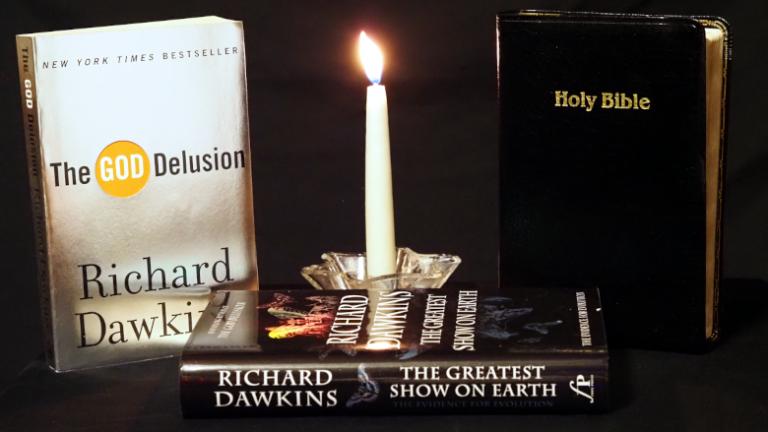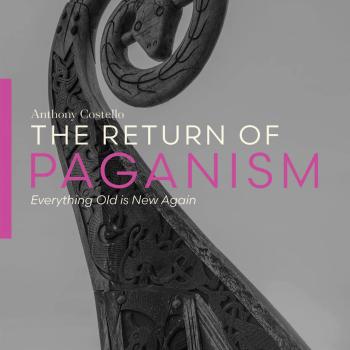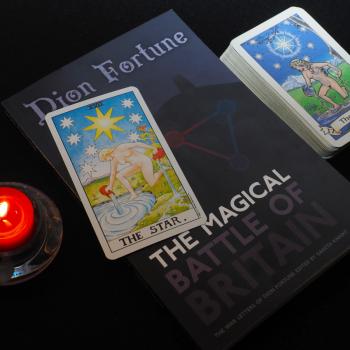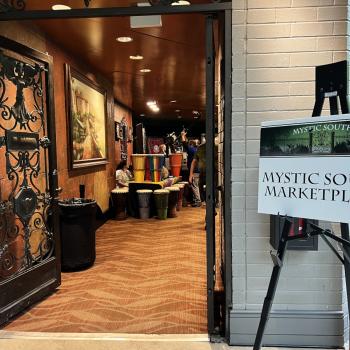What must it be like to embrace people who think you’re a fool, just because they hate the same people you hate?
No, I’m not talking about Evangelical Trump voters. I’m talking about legendary New Atheist Richard Dawkins, who’s calling himself a “cultural Christian.” Here’s a quote from a recent interview:
I love hymns and Christmas carols and I sort of feel at home in the Christian ethos, and I feel that we [Britain] are a Christian country in that sense … I call myself a cultural Christian and I think it would be truly dreadful if we substituted any alternative religion.
What’s behind this sudden love for Christianity?
If I had to choose between Christianity and Islam, I’d choose Christianity every single time. It seems to me to be a fundamentally decent religion, in a way that I think Islam is not.
Dawkins is also anti-trans. In 2021 the American Humanist Association withdrew their Humanist of the Year award for “making statements that use the guise of scientific discourse to demean marginalized groups … His latest statement implies that the identities of transgender individuals are fraudulent, while also simultaneously attacking Black identity as one that can be assumed when convenient.”
I’ve read two of Dawkins’ books. His 2009 The Greatest Show on Earth: The Evidence for Evolution is excellent. His 2006 The God Delusion is not. Dawkins defines “God” and “religion” very narrowly, using definitions taken straight from conservative monotheists. I don’t like fundamentalism either, but religion – whether Christian or Pagan or anything else – is a lot more than which set of supernatural propositions you affirm and which ones you reject.
But Richard Dawkins seems to have finally found a use for Christianity: attacking Muslims and trans people.
Richard Dawkins is a very intelligent person. But intelligence doesn’t always lead to wisdom.
Conservative Christians aren’t buying it
The kind of Christians who support Dawkins’ preferred culture aren’t exactly welcoming him.
Carmel Richardson, writing for The American Conservative, says Richard Dawkins’s ‘Cultural Christianity’ Is Thin Gruel. She says “having actively persecuted the church, Dawkins finds he is sad to see it go. We cannot pretend this is anyone’s fault but his own, and that of his compatriots who have crusaded against religion as the root of all social ills.”
Russell Moore is the editor of Christianity Today and was run out of the Southern Baptist Convention for opposing Donald Trump. He wrote New Atheism Finally Learns How to Destroy Christianity, saying “the urge to make religion the way to prove one’s cultural identity against ‘outsiders’ will always find an eager audience” and “if the gospel isn’t real, the gospel doesn’t work. Genuine paganism will win out over pretend Christianity every time.”
A quick Google search turns up many such criticisms. I can’t find a single Christian site welcoming Dawkins, or even reacting positively.
Culture is part of religion
The concept that religion is all about what you believe is a modern, Western, Protestant idea. For most people in most places throughout most of history, religion was and is about what you do, who you are, and whose you are. Religion is about identity and relationships.
I grew up in a white Southern fundamentalist church. I know why they support Trump even though he’s about as un-Christian as you can get. He’s an authoritarian leader and they think the world should be run by strong men – and he promised to hurt the people they don’t like. The elements of shared culture are more important to them than their very different theology and worship.
Richard Dawkins doesn’t like seeing public celebrations of Ramadan. The mere existence of trans people offends his short-sighted ideas about biological determinism. He has some nostalgic memories of his Anglican childhood. He’s never going to change his mind about the existence of the Christian God, but he’s willing to identify as a Christian to try to turn the clock back to the 1950s.
It’s not going to work.
Religion is driven by those who believe
And by “believe” I don’t mean those who affirm a religion’s supernatural propositions. I mean those who “believe in” the religion in the sense that they believe its sacred stories and traditions are important enough to work to maintain.
These are the people who tell the stories and lead the rituals. Those who practice the traditions day in and day out. Those who tend the shrines, maintain the altars, and clean the meetinghouses. Those who do what they do not for fear of hell or hope of heaven, but because it’s part of who they are and they can’t not do it.
Culture is a big part of their religion, but they aren’t cultural Christians (or Pagans or Buddhists or anything else). Religion isn’t something they think about when they see it on public display – or when they get angry because a competing religion is on public display. It’s something they think and live and breathe all the time.
Some of them are theistic and even mystical. Some are too busy here and now to worry about things nobody can prove or disprove. Either way, when they say they’ll light a candle for you, it’s not just “thoughts and prayers.”
These people are a small part of any religion, Christian or otherwise. But they’re the ones who keep the church going throughout the year so the cultural Christians have a place to go on Christmas and Easter – or just a place to have their wedding and their funeral.
Some believe harmful things
Not everyone who keeps their religion moving means well.
Dawkins is not wrong to fear the kind of Islam we see in Iran and Afghanistan, though he fails to recognize that most Muslims don’t want to live like that either. In this country, we have Christian Nationalists trying to undo the social progress of the past century. These people are zealous about their religion and about using the power of government to force everyone to live by their rules.
They’re determined and they’re persistent. They worked for 50 years to overturn Roe v. Wade, and now that they succeeded they’re not stopping there. They want a nationwide abortion ban, and then they’re coming after same sex marriage and birth control. Some would be content to force LGBTQ people back in the closet, while others want to undo Lawrence v. Texas and criminalize same sex relations.
They can’t be bargained with. They can only be defeated at the ballot box, election after election after election, until the mainstream culture changes for good.
What this means for Pagans
So what does all this mean for us as Pagans… besides shaking our heads at the irony of Richard Dawkins calling himself a Christian? I see four things.
Don’t try to ally yourself with people who think you’re evil. You can work with anybody who isn’t trying to harm you and yours if you need to, but don’t invest yourself in those who don’t accept you for who and what you are.
The pull of nostalgia is strong. It’s OK to appreciate good things about your past, but make sure your life keeps moving forward, not backward.
Don’t fear change. It’s coming whether you like it or not.
The Pagan movement needs more believers. Again, that’s not people who affirm supernatural propositions, it’s people who believe in Pagan concepts and traditions and practices deeply enough to make them an essential part of their lives.
Richard Dawkins’ book The Greatest Show on Earth is my go-to recommendation for anyone who has serious doubts about the reality of evolution. But his writings on religion are shallow and weak, and his identification as a “cultural Christian” flows out of that weakness. If he’s happy with that, I’m happy for him – Paganism is not a proselytizing religion.
But the rest of us can do better.


















